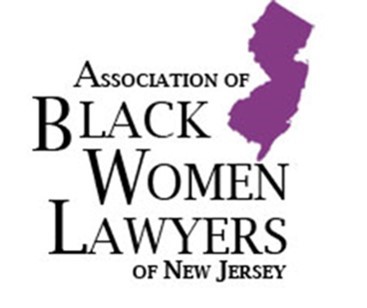
It’s Finally Our Time to Take a Seat . . . On the Supreme Court Bench!
Perspective Interviews by:
Carolyn V. Chang, Esquire, Past President & Social Justice Committee Chairperson
President Biden’s nomination of a Black Woman, the Honorable Ketanji Brown Jackson of the United States Court of Appeals for the District of Columbia Circuit, as the next Justice of the United States Supreme Court is a historic event which was long overdue. The President fulfilled his campaign promise but this nomination also makes it clear that the courts should reflect the rich racial, ethnic and gender diversity of this multi-ethic nation.
The federal and state courts have trailed far behind in the areas of diversity for generations, thereby denying many Black women and other people of color the opportunity to serve as members of the judiciary.
Three of the Founders of the oldest women’s bar association in the State of New Jersey, the Association of Black Women Lawyers agreed to a frank discussion with Past President, Carolyn V. Chang, Esquire on the extraordinary importance of this nomination.
C. Chang: What does the nomination of the first Black woman to the United States Supreme Court mean to you as a Black jurist, as a Black lawyer and as a Black woman?
Responses:
Founder, Honorable Joan Robinson Gross:
This historic nomination is long overdue. As a jurist, a Black lawyer and as a Black woman I can say that there were many other Black women lawyers who were exceptionally qualified for that nomination. One example of a qualified candidate was the late Barbara C. Jordan who President Clinton would have nominated; however, Barbara Jordan’s health was failing due to Multiple Sclerosis. There were also other jurists who were ready and extremely qualified, but who were not nominated, such as Judge Constance Baker Motley.
Founder, Honorable Renee Jones Weeks:
It was extremely gratifying to see and hear the President of the United States nominate the first Black Woman as the next Supreme Court Justice. I did not think that this would occur in my lifetime; however, it was a lifelong hope that someone who looks like me would take a seat on the highest Court in the land. As one of the Founders of ABWL, I always had a dream that something like this would happen. It was my hope that Judge Constance Baker Motley would have been the first Black Woman Supreme Court Justice; therefore, it is so very fitting that Judge Ketanji Brown Jackson shares a birthday with Judge Constance Baker Motley.
Founder, Patricia A. Darden:
Watching the President’s Press Conference when he officially announced his nomination of the Honorable Ketanji Brown Jackson of the United States Court of Appeals for the District of Columbia Circuit to the United States Supreme Court filled me with joy and pride. My emotions went from smiles to tears. I am so glad I was able to witness this during my lifetime. Frankly, I never thought I would. I presumed that the nomination and confirmation of Fabiana Pierre-Louis as a Justice of the New Jersey Supreme Court was my “mountain top”, but happily I was wrong. I recall when Constance Baker Motley was nominated to be a Federal Judge. I was elated at the nomination. Next to the passage of the Voting Rights Act, that nomination was then my “mountain top.” Now, I can say that when Associate Justice Ketanji Brown Jackson is confirmed, takes the Oath of Office and puts on that robe, she will be putting on that robe for me and for many other Black women in the struggle. Her robing will be glorious and a blessing to us all.
C. Chang: In your view what will this historic nomination mean to little black and brown girls?
Responses:
Founder, Honorable Joan Robinson Gross:
It will be inspirational because representation matters. There are three ways people learn: visually, you see an image and you learn from that image; auditory, you listen and speak in order to learn; and, kinesthetic-tactile learning by touching and manipulating material. When you see somebody who looks like you in a position of importance, you can say, I can do that. That visual image helps to pave the path.
Founder, Honorable Renee Jones Weeks:
This is all inspiring. This will give little black and brown girls another reason to pursue education and a career in the law.
Founder, Patricia A. Darden:
We all want to have that image because the image represents a possibility. I was a teenager when for the first time in my life I had an opportunity to meet a Black lawyer. That Black attorney was Theodore Z. Davis in Camden County. Theodore Z. Davis would later become the Presiding Judge of the Chancery Division in Camden County; however, the actual first image I recall seeing of a Black attorney was Thurgood Marshall on television. That television image was very important to me because it instilled in me the possibility of becoming an attorney. With the nomination and confirmation of Judge Ketanji Brown Jackson to the United States Supreme Court, little black and brown girls can see the possibility of becoming lawyers, Judges and Justices of the United States Supreme Court.

